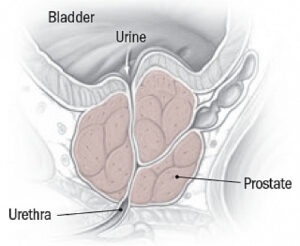Asthma is a respiratory disease, often beginning in childhood. It causes shortness of breath, wheezing, and chest tightness, a whistling sound when breathing (wheezing).
Side effects can be experienced if medications are not used properly. Long-term uncontrolled asthma may lead to serious health problems such as lung damage and heart and blood vessel (cardiovascular) disease. People with asthma may need to take medicines every day, including during exercise and at night.
Bronchial Themoplasty
There is no cure for asthma, but the symptoms can be controlled with medications and bronchial thermoplasty. Bronchial thermoplasty (BT) is a type of treatment that uses a small, flexible tube called an endoscope to deliver mild heat directly to the airways. The heat opens the airways and reduces shortness of breath during exercise.
Asthma Triggers
Asthma is a chronic inflammatory disease that affects the airways (the tubes that carry air in and out of your lungs). The airways are lined with a layer of cells, including nerve endings, which sense triggers, such as allergens.
These triggers may cause the muscles around the airways to tighten, which causes the airways to become inflamed and swollen and produce extra mucus. The narrowed airways make it hard to breathe, which can cause shortness of breath, wheezing, chest tightness, and a whistling sound when breathing (wheezing).
It is possible for asthmatics to go through their days without experiencing any symptoms at all. People with asthma must take steps every day in order to manage their condition. They must learn to recognize their symptoms, and what triggers them.
Once the asthmatic knows what things trigger his or her asthma flares, he or she can avoid those triggers if possible, or find ways around them. It is also important for asthmatics to use their inhalers properly; otherwise, it will not be as effective in managing their symptoms. Asthma attacks can happen anytime or anywhere. Sometimes the trigger cannot be identified.
Asthma triggers vary by person. For example, some people may experience asthma symptoms when they inhale smoke or perfume, but other people are not affected at all by the same triggers. The most common asthma triggers include: Colds and other respiratory infections (like bronchitis), allergies, and exercise
Tips to avoid triggers
Asthma is a very serious disease that can be life-threatening if not taken seriously. However, there are ways you can reduce the severity of your asthma attacks and even avoid them together. We have put together 7 tips for you so stay healthy this summer season!
1) Find Your Triggers
One of the biggest mistakes you can make is to not find your asthma triggers. If you do not know what causes your Asthma, how are you supposed to avoid it? Knowing your triggers will help you plan ahead when planning outdoor events or activities.
Dust, dirt, pollens, microbes are some of the common triggers which you can avoid by maintaining optimum ambiance. If you have new technology air conditioning Sydney installed at home, then HEPA filters installed in the AC can trap pollens, germs, etc., and keep the air clean.
2) Clean House Frequently
If you live in a dirty environment, it can trigger your asthma. Make sure to clean your house frequently, especially if you have pets. Pet hair can get everywhere and be one of the biggest triggers for asthma
3) Vacuuming Is Good
You should vacuum often, but make sure not to overdo it. If you are continuously vacuuming daily or even multiple times per day, you are going to cause a lot of stress on your body. The stress can lead to asthma attacks or it can even trigger them.
4) Keep Your Car Clean
Your car is not only filled with all those things you would expect, but it also has lots of dust from the road and many other contaminants that will irritate your lungs. So make sure to keep your car as clean as possible and avoid driving on extremely dusty roads if possible.
5) Avoid Household Chemicals
Household chemicals such as those used for cleaning can cause a lot of irritation in your lungs, which is probably not something you need when suffering from asthma. They can trigger asthma attacks and make symptoms a lot worse.
6) Do Not Dry Clean Your Clothes
Dry cleaning can irritate your lungs and trigger asthma symptoms. It is not worth the risk of exposure if you have to suffer from asthma symptoms, so avoid dry cleaning your clothes as much as possible. If it is something that cannot be avoided, make sure not to dry clean your clothes on a regular basis.
7) Do Workout
Exercise is very healthy for you and it can help with asthma symptoms, but only when done properly. If you exercise outside, make sure not to do so in the middle of the day because that is when pollen and other irritants are at their highest, so it is a big risk.
Stay away from the sun and exercise in the early morning or late evening when pollen counts are low. You can get your daily exercise that way without worrying about triggering asthma symptoms.
You can also start doing a workout at home by turning on ducted air conditioning Sydney. This new technology AC will help in maintaining optimum ambiance for doing the regular workout.





